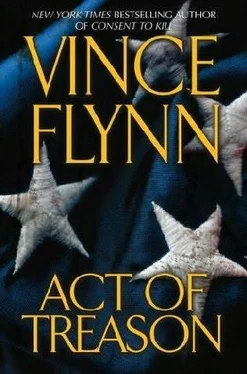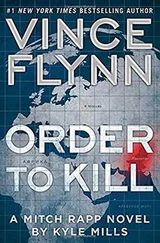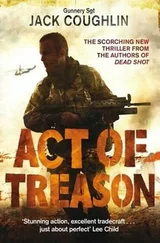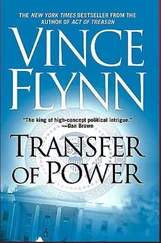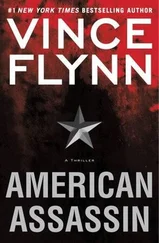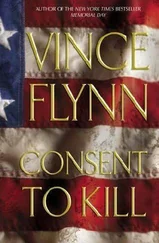They untied the old man and sat him down for a talk. The big Russian was still unconscious and Gazich remained silent on the floor despite the obvious pain of his wounds. The man’s name was Andreas Papadakos, and he was the owner of the building. He had met Alexander Deckas five years ago. The man paid his rent in advance every six months. He traveled frequently and had never been a problem. That was until the Russians showed up a few days earlier looking for him. They told Papadakos that Deckas was a hired gun. An assassin. They told him they worked for the Russian State Police and they were there to arrest Deckas and bring him back to Russia for trial.
The old man asked the Russians for identification. They told him not to worry, so he said he would call the local cops. That was when things got ugly. Papadakos had five daughters who worked for him. He had grandchildren coming and going all day. Sixteen of them. The Russians had already cased the place and told him if he called the authorities, or warned Deckas, they would dismember his grandchildren one by one.
Up until this point, the only real opinion Rapp had formed of the big Russian was that he was an irritant. He even felt a little sorry for the guy now that his face looked like one of those latex masks costume shops sell around Halloween. After hearing that he had threatened to cut up little children, all of Rapp’s sympathy vanished.
Over the years Rapp had done a lot of interrogations. They ranged from the mundane, like talking to a street vendor in Damascus about something he may have seen, to threatening to blow a man’s head off. All those years of experience had led to an ability to pretty much tell from the start when someone was being either forthright or deceptive in their answers. Papadakos denied any knowledge or involvement with Deckas. Furthermore, there were the five daughters and the sixteen grandchildren. Why would he endanger them by getting into business with a guy like Gazich?
In the end, the situation dictated what they needed to do. Involved or not involved, Papadakos did not want the cops snooping around. If Rapp found out later that the man and Gazich were full business partners he would come back and get him. Papadakos had spent his whole life in Limassol. He was not going to simply disappear and leave his business and grandchildren behind. So a deal was struck. Once the café was closed, Rapp would get rid of the bodies and the old man and his family could go on living their lives as if nothing had ever happened.
Rapp followed Papadakos downstairs and kept an eye on him. The rest of Coleman’s men showed up a few minutes past 11:00. All three were former SEALs who had served under Coleman. Wicker and Hacket casually walked up to the sedan with the dead Russian in the front seat. Wicker climbed behind the wheel and Hacket got in back. Wicker started the car, put it into drive, and slid out of the space. Fifteen minutes later they found a nice dark alley a little more than a mile away. Hacket got out and walked it from one end to the other, just to make sure it was deserted. Wicker circled back around, drove halfway down the dark canyon, and turned off the car. The dome light was extinguished and the trunk popped.
Hacket was waiting at the rear bumper snapping on a pair of disposable latex gloves. When the trunk lid came up, he reached in and yanked the clear plastic cover off the light casing. He flicked the cover into the recesses of the trunk and pulled the small bulb out of its slot. With darkness restored, Hacket walked around to the front passenger door and opened it a few feet. The body began to fall out of the car. Hacket placed his left hand on the head of the dead man, opened the door the rest of the way and then grabbed the limp body under both armpits. He dragged him out of the car and back to the trunk. Wicker stood on the other side of the car, his head slowly turning from one end of the alley and then back. The Russian was at least 200 pounds, but Hacket was a solid 225. He hefted the torso into the trunk face down and then picked up the legs, and twisted and bent the body the rest of the way in. Hacket softly closed the lid and they drove away.
By the time they got back to the café, the place was nearly empty. Parking was not a problem. Brooks was across the street packing and sanitizing the hotel room. Coleman and Stroble were treating wounds, securing the prisoners, and going through Gazich’s stuff looking for information. Both the big Russian and Gazich were given morphine. Rapp sat at the bar, drank a glass of wine, and kept an eye on Papadakos. As business slowed and the place began to empty, the old man joined Rapp at the bar and ordered a bottle of red. He drank three glasses in under thirty minutes and ordered another bottle. He was clearly anxious to be done with the entire drama.
At 1:00 in the morning the last two patrons were shown the door. They stumbled off, weaving their way down the sidewalk in search of the nightclubs a few blocks over. By 2:00 a.m. the street was pretty still. Brooks stood watch at one end of the block and Wicker the other. The big Russian was marched down the stairs under his own power. The dead Russian and Gazich needed to be carried. They debated wrapping them up in tablecloths, but decided the better route was to make it look like they were drunk. Hacket and Stroble carried Gazich out first, the two former SEALs book-ending the Bosnian, one under each arm, like three drunk sailors on shore leave. They stuffed him in the back of the van and then went back for the dead Russian. He was carried down in the same fashion and placed in the backseat of the car that Wicker had driven earlier.
Wicker came back from his post at the end of the block and climbed behind the wheel of the car with one dead Russian in the backseat and another one in the trunk. He pulled away from the curb with Hacket following him in the rental car they had picked up while they waited for their luggage at the airport. They were headed back to the same alley. The dead Russian in the backseat would join the dead Russian in the trunk, and then Wicker would abandon the car in a nice shady spot, where with any luck the stench would go unnoticed for a few days. After that they were to head up to Gazich’s house in the hills where they would search it from top to bottom.
Rapp said good-bye to Papadakos and thanked him for his cooperation. The old man asked Rapp what would happen to Deckas. Rapp lied and told him he wasn’t sure, even though he knew exactly what he was going to do with him. He was going to squeeze every last bit of information from him and then he was going to give him a death befitting a man who set off car bombs in the middle of an urban neighborhood. He needed to be made an example of. Rapp could tell the old man was worried so he told him that people way above his pay grade would be sorting the whole mess out. If Rapp had only known how accurate that statement was he probably would have finished off Gazich right there on Cyprus.
WASHINGTON, DC
The phone rang at 6:01 a.m. Kennedy noticed the time before she answered the phone. She was lying on her left side, and the glowing green numbers of her alarm clock were staring her straight in the face when she opened her eyes. She reached out with her right hand and grabbed the handset. Attempting to view the small caller ID screen without her glasses would be futile. The cord got caught on something, so she tugged. A magazine and the TV remote fell to the floor. For security reasons she did not own a cordless phone. She kept her head on the pillow and brought the sturdy beige handset to her right ear.
“Hello.”
“Director Kennedy?”
“Speaking.”
“Major Hansen…duty officer White House Situation Room.”
“Yes, Major.”
Читать дальше
